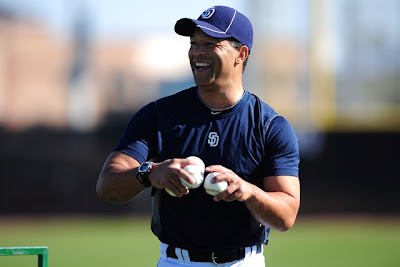Here at the Concession Stand, we love our food. But we also love sports and fitness. So today, we’re combining all three. In a good way, of course (we’d never swim right after eating! Never!).
 Dr. Ilya Rachman (pictured) is an internist that specializes in treating weight-related issues. He’s a Clinical Instructor at the UCLA School of Medicine and he’s also an Attending Physician at Cedars-Sinai Medical Center in Los Angeles (so, if you want to read between the lines here, he knows his stuff). In 2006, he founded the Trim360 weight loss program. The idea for Trim360 came after seeing how people were facing significant health problems due to poor eating habits.
Dr. Ilya Rachman (pictured) is an internist that specializes in treating weight-related issues. He’s a Clinical Instructor at the UCLA School of Medicine and he’s also an Attending Physician at Cedars-Sinai Medical Center in Los Angeles (so, if you want to read between the lines here, he knows his stuff). In 2006, he founded the Trim360 weight loss program. The idea for Trim360 came after seeing how people were facing significant health problems due to poor eating habits.Dr. Rachman was kind enough to speak with the Concession Stand about Trim360 and about the proper approach for anyone who wants to lose weight, particularly athletes who want to achieve specific fitness goals.
CS: How did you get interested in helping people improve their overall health and fitness?
IR: It was actually kind of an organic process. Most of my day was spent in a doctor’s office fixing what people caused to themselves by eating. Little by little, people are eating themselves into sickness.
(I thought) it would be more common sensical to fix the way they eat and live and it was just a natural progression. We offer practical options in terms of a healthy lifestyle.
CS: How long has Trim360 been going and why did you want to start the program?
IR: We’ve been doing medical weight loss for about 5-6 years. Physicians don’t get taught weight loss or weight management in medical school or residency, which is quite stunning when you think about it. All we are taught to do is manage cholesterol and give you medicine.
The idea behind Trim360 is practical. It’s common sense and “B.S. free,” so to speak.
CS: Have you worked with athletes in the Trim360 program (or otherwise) before? If yes, what are some common issues they consult you about?
IR: We’ve been fortunate that we’ve been able to implement this to all demographics, age, categories and types of people. Initially when we started out, we offered it to patients and our patients brought it to their parents their friends, and their children. We’re fortunate to have several generations of family members. Athletes, dancers, business professionals, all kinds of medical backgrounds and social backgrounds (have used Trim360).
CS: What are some health tips for athletes or people who are physically active who might be changing their diets to achieve a certain fitness goal?
IR: First thing I would say to any athletes: if people don’t devote to some thought to the nutritional component, it’s almost pointless to exercise.
If you don’t consume enough of high-quality protein on a daily basis, there’s no point in exercising; you can’t build muscle, you can’t build muscle memory or any other type of memory that supports your athletic performance.
Minerals and vitamins are little facilitators, so without those new things it’s almost pointless to exercise. You also need unsaturated fats — the right amount of healthy fats — in your diet as well.
CS: What are some common misnomers from people who want to lose weight?
IR: Not to be derogatory towards exercise, but we don’t want people to get unnecessarily frustrated (when they don’t see results).
Exercise is great for working through weight-loss plateaus, but it’s not great for weight loss itself. Calorie reduction is the best thing for weight loss.
CS: You are working on a book right now. What is it about?
IR: It’s about dispelling myths and giving people the reality of how to lose weight. It basically gives you a realistic breakdown of what it takes for real people (to lose weight) that have jobs, that have family and that have commitments.
They don’t need to reinvent the wheel. They can implement it so they can have a healthy lifestyle. More specifically, we found it really takes a combination of knowing what your personality type is. Weight-loss approach should be tailored to your personality type. The reason so many people struggle with weight loss issues is they try to implement the wrong plans for their lives.
---
The Concession Stand is very appreciative that Dr. Rachman was willing to take the time to answer some questions. If you would like more information about Trim360, visit their website at http://www.trim360.com./












